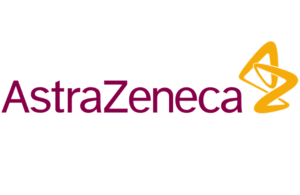 The complement C5 inhibitor Ultomiris (ravulizumab) from AstraZeneca (LON:AZN) has won approval in Europe as adjunctive therapy for adult patients with generalized myasthenia gravis (gMG) who are anti-acetylcholine receptor (AChR) antibody-positive.
The complement C5 inhibitor Ultomiris (ravulizumab) from AstraZeneca (LON:AZN) has won approval in Europe as adjunctive therapy for adult patients with generalized myasthenia gravis (gMG) who are anti-acetylcholine receptor (AChR) antibody-positive.
The regulatory nod represents the first approval for a long-acting C5 complement inhibitor for treating gMG in Europe.
While myasthenia gravis is a chronic autoimmune, neuromuscular disease associated with weakness of skeletal muscles, in gMG, the weakness extends to ocular muscles along with limb and respiratory muscles.
The onset of gMG is often age-related, frequently beginning in women before 40 and for men after 60.
There are approximately 89,000 patients in Europe with gMG.
AZN shares ticked up 0.55% to £9,989.00.
In July, the Committee for Medicinal Products for Human Use (CHMP) recommended approval of the drug for gMG. CHMP based its decision on data from the Phase 3 CHAMPION-MG study.
The data were published in NEJM Evidence.
Renato Mantegazza, a CHAMPION-MG trial investigator, noted in a statement that gMG can have “a debilitating impact on quality of life.”
“Today’s approval is a major advancement for treating gMG in Europe, offering patients and physicians a new, long-acting treatment option which has shown reliable efficacy and sustained improvements in activities of daily living,” Mantegazza continued in a news release.
The drug won FDA approval in the U.S. for adults with generalized myasthenia gravis earlier this year.
The drug won approval in Japan in August for some adults with gMG.
In the U.S., Ultromiris also has won approvals for paroxysmal nocturnal hemoglobinuria and atypical hemolytic uremic syndrome.
Marc Dunoyer, CEO of AstraZeneca’s rare disease unit Alexion noted in a news release that the approval marks “an important step” toward realizing its vision of improving the quality of life for patients with gMG.
AstraZeneca notes that regulatory reviews are ongoing in other countries across the world.